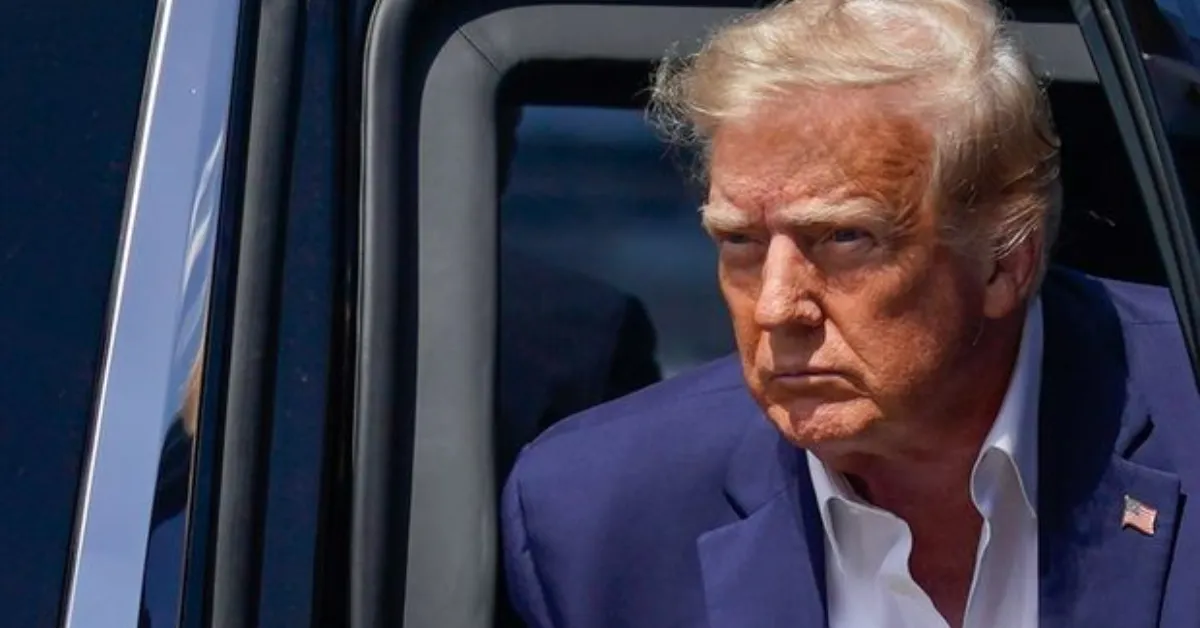Indictment: Trump Kept, Flaunted, And Denied Return of Classified Documents
MIAMI — Broad Felony Indictment Reveals Damning Details of Former President Donald Trump’s Mishandling of National Security Information:
Improper storage of sensitive documents on nuclear capabilities in his Florida estate, frequent solicitation of assistance from advisers and lawyers to conceal demanded records, and casual exhibition of a Pentagon “plan of attack” and classified map.
Actions allegedly committed form the crux of a former president’s duty to safeguard the nation’s most valuable secrets, as stated in the historic indictment, marking the first criminal case against a former president.
The prosecution contends that the safety of troops and confidential sources was jeopardized due to the documents he stored, refused to return, and, in certain instances, exhibited to visitors.
“Our laws that protect national defense information are critical to the safety and security of the United States and they must be enforced,” In his first statements to the public, Jack Smith, the particular attorney for the Justice Department who brought the case, remarked.
 “Violations of those laws put our country at risk.”
“Violations of those laws put our country at risk.”Trump, the leading Republican presidential candidate in 2024, will appear in court Tuesday afternoon in Miami.
The judge initially assigned to the case was selected by the former president and criticized for deciding in his favor last year in a dispute over a special master designated to evaluate the confiscated secret information. Two months-long Trump legal team members quit Friday.
Trump faces 37 felony counts—31 for deliberate retention of national defense information and the others for conspiracy, obstruction, and false statements—that may result in a lengthy jail sentence if convicted.
The same indictment charged a Trump staffer with conspiracy and other charges for moving dozens of boxes at his Florida home and lying to investigators.
On Friday, Trump conflated his indictment with a classified papers inquiry involving President Joe Biden. Unlike Trump, Biden did not hide or know about confidential records in his home and office.
“Nobody said I wasn’t allowed to look at the personal records that I brought with me from the White House. There’s nothing wrong with that,” Trump wrote on Truth Social.
Trump has been indicted in New York and faces investigations in Washington and Atlanta that might lead to criminal charges. However, legal experts and Trump’s aides had long considered the Mar-a-Lago probe the most dangerous and ripe for prosecution.
Since Trump’s attorneys were informed that he was under investigation, campaign aides assumed charges would be brought.
The indictment comes as Trump dominates the Republican primary. A Trump campaign insider called the former president “defiant” and said he would slam the filing in a speech to Republican Party officials in Georgia Saturday afternoon and North Carolina Saturday night.
After the indictment was unsealed, aides were more restrained as they considered the legal charges and their threat to Trump beyond short-term political advantage.
The document’s shocking charges, including reliance on surveillance video and an audio recording, will likely make it more complicated for Republicans to criticize than an earlier New York criminal case that many legal analysts had called weak.
The Justice Department investigated Trump as president and private citizen for years but never charged him with a felony until the Papers case.
An earlier special counsel inquiry into his 2016 campaign and Russia was the most famous, but prosecutors cited Justice Department precedent against indicting a sitting president. He lost that protection after resigning.
Last November, Attorney General Merrick Garland, a soft-spoken former federal judge who believes no one is above the law, appointed Smith, a war crimes prosecutor with an aggressive, hard-charging reputation, to lead both the documents probe and a separate investigation into efforts to subvert the 2020 election. Investigation continues.
NewsNation shared a Tweet about Donald Trump’s indictment in the classified documents case:
READ: Trump indictment in classified documents case https://t.co/3yLn7jIWll
— NewsNation (@NewsNation) June 9, 2023
After departing from office in January 2021, Trump relocated hundreds of sensitive papers to Mar-a-Lago, as outlined in the 49-page indictment.
From the duration of Trump’s presidency until August 2022, when the FBI acquired a search warrant, the documents were haphazardly stored in various areas such as a “ballroom, a bathroom and shower, office space, his bedroom, and a storage room.”
The indictment alleges that Trump’s boxes were stored in one of Mar-a-Lago’s palatial ballrooms from January until March 15, 2021. The charge depicts rows of boxes on the ballroom stage.
Trump, who claimed without evidence that he had declassified all the records before leaving office, allegedly knew his duty to protect confidential material but ignored it.
He boasted of holding onto a personal military dossier concerning a future attack on another country in a July 2021 Bedminster meeting.
If you are interested to know more about other trending news, then read our other articles here:
- Justin Bieber’s Father Issues Apology For Offensive Pride Month Message
- Heartbreaking Acc*dent Claims Life of Teenager at Lee’s Summit Landfill!
- Deαdly Collision Rocks Jefferson County: 2 Dead, 3 Injured on I-57!
“Secret. This is secret information. Look, look at this,” the indictment states. He said he could have declassified the material, but “Now I can’t, you know, but this is still a secret,” per the indictment.
The indictment alleges that Trump refused to return the documents despite over a year of government demands and encouraged others to conceal them.
After the Justice Department issued a subpoena for the papers in May 2022, Trump allegedly asked his lawyers if he could resist it. He added, “I don’t want anybody looking through my boxes.”
“Wouldn’t it be better if we just told them we don’t have anything here?” He was quoted as having said by one of his attorneys.
However, the indictment claims that before his own attorney investigated the property for classified papers, Trump instructed staffers to remove boxes of documents from the Mar-a-Lago storage room so they would not be discovered during the search and subsequently turned over to the government.
When Justice Department representatives visited Mar-a-Lago to collect the papers weeks later, they were given a folder containing only 38 documents and a false letter certifying that all records responsive to the subpoena had been provided.
The indictment claims that on that day, as Trump promised investigators, he was “an open book,” staff carried some of his boxes onto a plane headed for Bedminster.
Nevertheless, the FBI obtained a search warrant and returned in August to collect over 100 additional documents, indicating their belief that there were still numerous undisclosed materials within.
The Justice Department has disclosed that Trump retained 300 top-secret and other classified materials.
As per the indictment, Walt Nauta, one of the personal assistants accused of relocating the boxes across the property, provided false information to the FBI regarding their whereabouts and now faces charges of conspiring to conceal them. Nauta’s attorney declined to comment on the matter.


